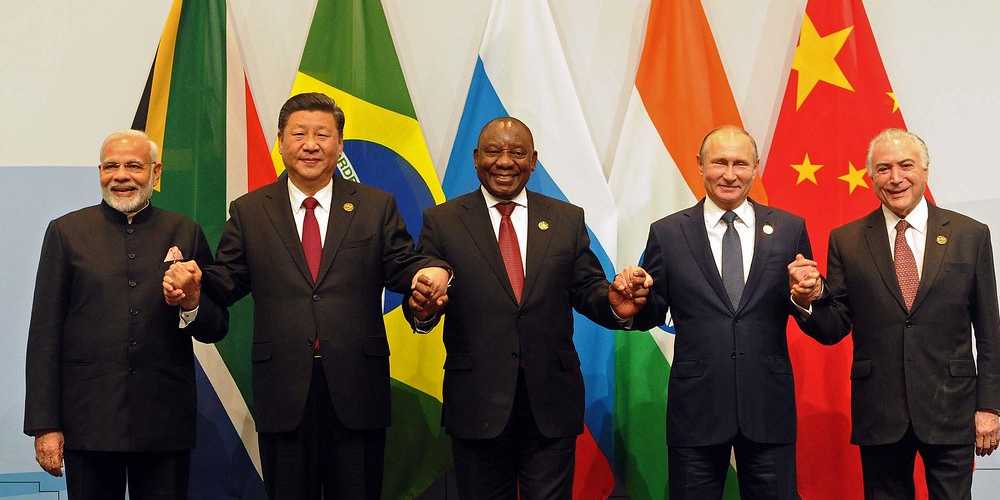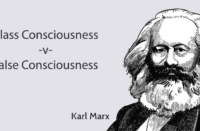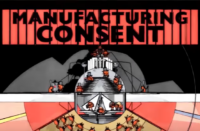Can there be a world based on equality? People living in countries benefiting from imperialism to justify that inequality might say no, it’s impossible. But the people in poor countries may ask, at least can there be a just world?
After World War 2, when global hegemony shifted from Britain to the US, there was no panic among the intellectuals; but when the global north begins to lose its hegemony and the the global south is looking to emerge, we witness widespread dyspnea, except of course from those who are anti-imperialist. What we wish to see is a world without hegemony where growth is democratised and justice prevails. Imperialism has created a working class “aristocracy” which views itself in a different way compared to the working classes of peripheral countries.
It is not surprising to note that western media and intellectuals support imperialism because they share in its spoils.
Yanis Varofakis said that when the Soviet Union showed signs of collapse, the US Congress objected to allocating more money on military spending: what followed a reduction of military funding in 1991 was a recession in the US economy. The US economy is heavily based on military spending. The US has to keep producing weapons and keep disposing them by creating wars around the world, including the invasion of Iraq, undertaken on the flimsy grounds that Iraq had “Weapons of Mass Destruction”. Who is the threat for the world peace: is it the US, which spends more for the military than the next 10 countries combined and has over 800 military bases around the world? Or is it a country whose president Xi Jinping says, “[i]n pursuing modernisation, China will not tread the old path of war, colonisation and plunder, taken by some countries.”
Imperialism spares no one. Henry Kissinger once said: “to be an enemy of the US is dangerous, but to be its friend is fatal.” The EU is currently experiencing that prophesy. According to veteran journalist Seymour Hersh, when the Nord Stream 2 pipeline was blown up, the countries that gained were the US and Norway. Germany is buying natural gas from them at higher prices than it was from Russia, resulting in inflation. The “Wassenaar Arrangement” denies technology to countries which the US considers as an enemy.
Vijay Prashad has noted that hyper-imperialism has become so decadent and dangerous that it has no program for saving the planet. US-led imperialism is trying to hold on to its hegemony only by military supremacy, while it is challenged by China in the areas of economy, technology, finance and innovation. Imperialism wants to bleed Russia in a prolonged war in Ukraine and wants to drag Iran into a long war in the Middle-East with Israel, and it will target China with Taiwan as a flash point in the future. This is the decadence of US-led imperialism, when the world is facing a climate catastrophe which is beyond imagination.
Woodrow Wilson is credited with the idea of the right of nations to self-determination (two years after Lenin proposed it for altogether different reasons). He emphasised the need for decolonisation essentially so that the liberated colonies can be exploited through neo-colonialism by US-led imperialism. During the 1970s, West Germany and Japan efficiently produced cheaper goods, and for the first time the US’ imports exceeded her exports. The Bretton Woods system which worked well when the US had a trade surplus, had to be made inoperational through the “Nixon Shock”. Usually empires collapse through debt, but the US became the only empire in history which got stronger with increasing debt because of its dollar power. As world trade maintained a constant demand for dollars, a widening trade deficit was managed by printing dollars. The BRICS+ is attempting to trade in currencies other than US dollars, a blow to dollar hegemony, though it may be difficult to move away from the dollar immediately.
Imperial institutions like the IMF strangle developing nations through debt traps. The UN says that in 2021 developing countries, with the exception of China, had a public debt of 11.5 trillion USD, and paid 400 billion USD to service their debt (twice the amount they got as aid). These countries are left with nothing to provide for people’s welfare while development funding is spent on facilitating raw material exports: thus countries are looking for other alternatives. Countries like Burkina Faso are avoiding the IMF and finding new ways to service their debts. Sahel countries have shown the door to the French forces stationed in their countries, while many developing countries are taking the option of the Belt and Road Initiative to develop their economies.
After the Ukraine war broke out, the US confiscated 400 billion USD of Russian money: this act has sowed doubts in the minds of other countries which are now looking to find other ways to hold their reserves than in dollars and make use of other fin-tech payment systems like those offered by China. This competition from China in the fin-tech is the root of the new Cold War.
These factors make the creation of a multipolar world inevitable, in which developing countries can carve out a space to maneuver and develop their productive forces, while countries like Cuba can attempt to save its revolution. How will this multipolar world look? Will it feature regional cooperation of developing countries which trade on equal terms, or will it be a multipolar imperial world. We cannot answer that question right now. As communists, we struggle to overthrow capitalism, but independent of our wishes, society will still pass through stages to overcome its current issues, and a multipolar world might be one of them. How these formations will benefit the working classes in their respective countries, remains to be seen.
“It was the best of times, it was the worst of times”
– Charles Dickens, A Tale of Two Cities (1859)






